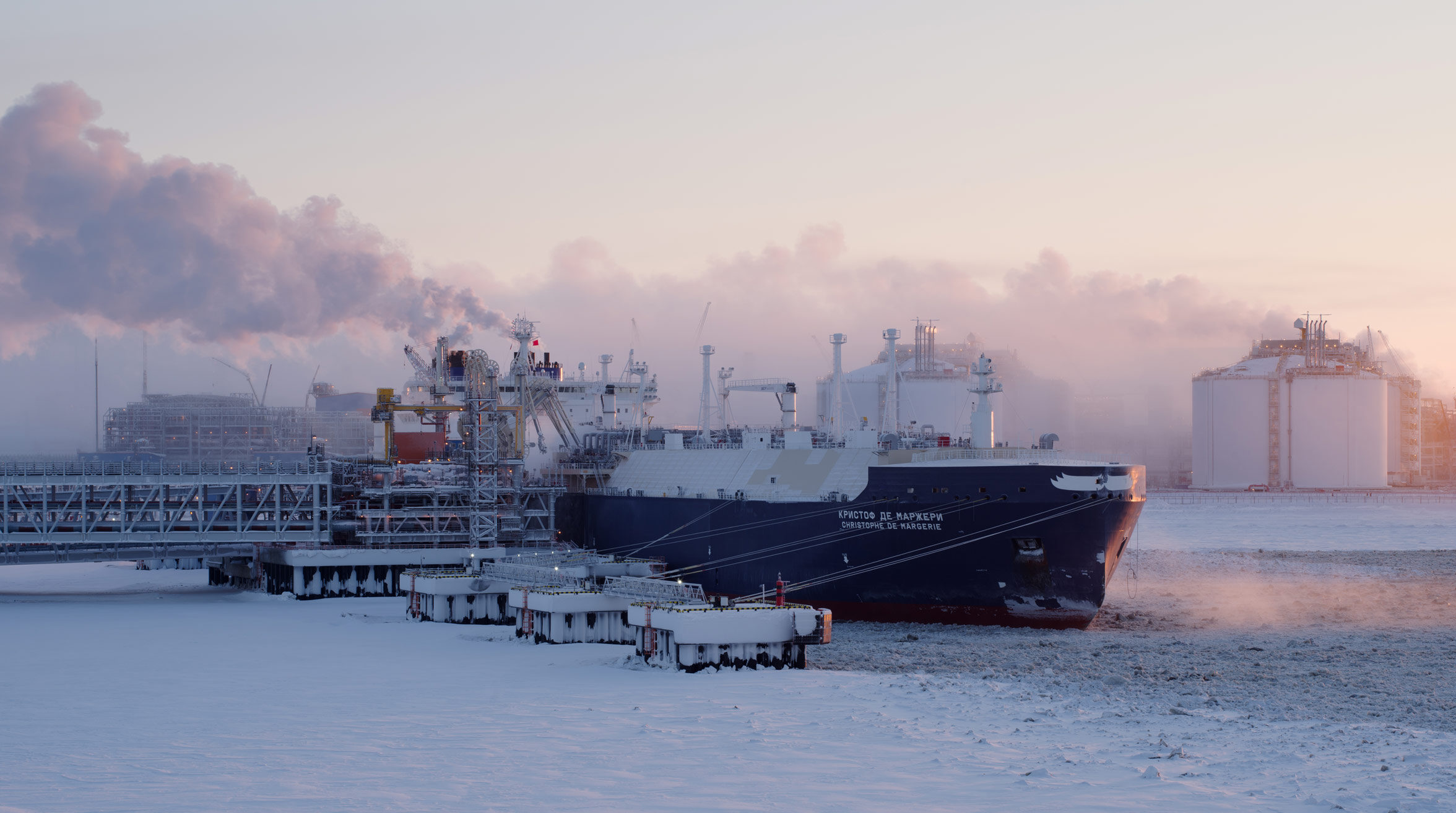US and EU want to freeze Russian liquefied gas

The United States is considering a package of sanctions against Russia to block new liquefied gas projects. Meanwhile, the European Parliament is moving in favor of blocking purchases of Russian LNG. All the details
To further damage Russia's economic revenues, which largely depend on the oil & gas industry, the United States is considering introducing new sanctions on the sector. As reported by the Norwegian newspaper High North News , specialized in Arctic affairs, Washington intends to tighten its sanctions regime against Russia so as to also include the future projects of Novatek, the country's largest liquefied gas producer. These restrictions have already proven effective in hampering Novatek's Artic LNG 2 project, making it more difficult for icebreakers specialized in transporting the fuel to access it.
THE OBJECTIVE OF THE UNITED STATES
Speaking at the Financial Times ' Commodities Global Summit, which took place in Switzerland last week, Geoffrey Pyatt (he is the US assistant secretary of state for energy) said that the United States is "trying to reduce Russian oil revenues and from gas as quickly as possible, without destabilizing our global energy market."
The United States is the world's largest exporter of liquefied gas , but in January President Joe Biden suspended new export permits for this fuel until their impact on the climate, economy and national security could be assessed: a decision apparently at odds with both Russia's containment plans and the desire to stabilize global energy markets.
THE CRISIS OF THE ARCTIC LNG 2 PROJECT
US sanctions, as mentioned, are actually hindering Russian plans. Novatek had to suspend operations on Arctic LNG 2. The project is located in the Russian Siberian Arctic and was supposed to start commercial deliveries of liquefied gas in the first quarter of 2024. But the timing was disrupted by sanctions, which also pushed the foreign shareholders (including the French company TotalEnergies and the Japanese consortium Japan Arctic LNG) to freeze their holdings.
The main problem is that Novatek does not have any methane tankers equipped with icebreakers and therefore capable of navigating Arctic waters: six of the vessels destined for the project are stopped in South Korea, in the Hanwha Ocean shipyard, because the construction company does not want violate American sanctions.
The new sanctions appear to target Novatek's next project, called Murmansk LNG.
THE EUROPEAN UNION'S MOVE AGAINST RUSSIAN LIQUEFIED GAS
But it's not just the United States. The European Union is also moving to combat Russia's fossil fuel industry: last week, in fact, Parliament voted in favor of a community ban on the import of Russian liquefied gas. In the last two years the Union has significantly reduced its energy dependence on Russia – which was very strong before the invasion of Ukraine began -, but it has not placed sanctions on gas and indeed continues to purchase fuel by ship, although in overall quantities that are not comparable to those of 2021.
In 2021, the European Union imported approximately 140 billion cubic meters of gas via pipe from Russia plus 15 billion cubic meters of liquefied gas. Pipeline gas purchases were minimal last year, but liquefied gas purchases increased, to 22 billion cubic meters. Russian liquefied gas arrives on European territory mainly through Spain, Belgium and France.
High North News writes that exports of liquefied gas from the (unsanctioned) Yamal LNG project to the European market provide Russia with revenues of around $12 billion per year.
This is a machine translation from Italian language of a post published on Start Magazine at the URL https://www.startmag.it/energia/stati-uniti-sanzioni-gas-liquefatto-russia/ on Sun, 21 Apr 2024 05:56:26 +0000.
